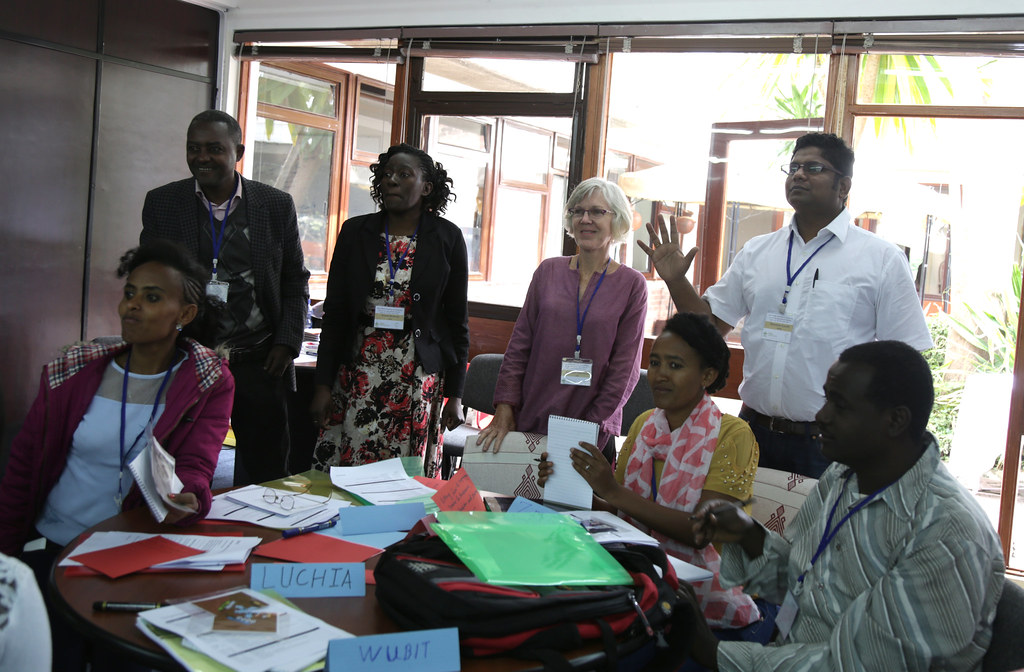Developing capacities for gender responsiveness in Ethiopia: Post workshop evaluations
The importance of gender in agricultural research for development cannot be over-emphasized, with donors as well as research, development and government institutions placing great emphasis on considering gender dimensions in agriculture.
This can be attributed to increased recognition of the important role that women play in agriculture. For instance, this Food and Agriculture Organisation reports that ‘women comprise about 43% of the agricultural labour force globally and in developing countries’; the world’s majority poor are also women.
This notwithstanding, the gender in agriculture sourcebook explains that women producers face numerous challenges in increasing productivity and to ensure that their contributions to food, income and nutritional security in farm households are regognised.
Major challenges that women face include limited access to and control over productive resources, income and participation in decision making, time constraints and low levels of social capital. For this reason, there have been increased calls to carry out gender analysis when considering technologies to employ for increased agricultural productivity. This (gender analysis) will ensure that the whole farming system in which gender is a critical component will be addressed for increased impact of the technological advances.
Women producers are not only the ones constrained; most research and development practitioners involved in agricultural programs lack the knowledge, skills and tools to conduct gender analysis, to understand the gender discrepancies and use the information to design strategies to address the gaps identified.
For success in agricultural research for development, institutions, programs, and projects must have the skills and resources (both financial and human) to address the differing needs of men and women farmers.
For the recent workshop on ‘Integrating Gender into Agricultural Programming‘, the Africa RISING project in the Ethiopian Highlands carried out a study with local partners to ascertain their gaps in integrating gender into agricultural programming.

The post-workshop evaluation revealed that various participants in the workshop had greater familiarity and experience with gender especially among the female participants.
However, both male and female participants clearly needed further support, training, and assistance to translate gender into practical changes in their work. Analysis of the pre and post workshop evaluations indicate a larger percent change among both male and female participants on aspects related to applying gender analysis tools, gender mainstreaming, how to engage mixed and single gender groups and using a gendered value chain approach. However, the percent change seemed to be higher amongst the male compared to the female participants. Female participants expressed greater change in applying the gendered value chain approach.
Participants expressed interest in furthering their capacity in project planning and measurement of gender impact, how to integrate gender analysis into their project cycles, and training facilitators to work with bio-physical scientists using a participatory approach.
With the acquired gender analysis skills and the gendered value chain approach, we hope that CGIAR staff and local partners will be able to evaluate gendered constraints and identify opportunities available to women and men for them to improve their livelihoods.
To contribute towards continued learning and sharing of experiences a Google group has been set up. Facilitators and workshop participants will be able to review efforts to apply the knowledge and skills learned and share new/emerging ideas and nurture the group to become gender sensitive and responsive.
The workshop was led by Kathy Colversion and Annet Mulema with inputs from ILRI’s capacity development unit




